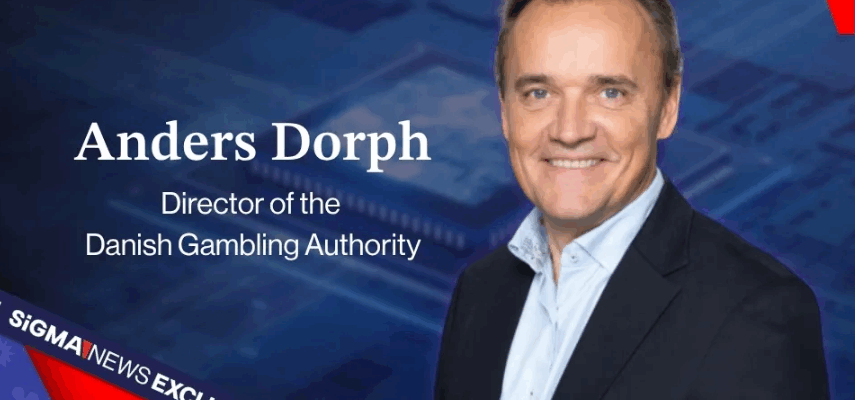Denmark consistently ranks among Europe’s leaders in “channelisation” — the proportion of players choosing licensed, legal gambling platforms over unlicensed ones. According to Anders Dorph, Director of the Danish Gambling Authority (Spillemyndigheden), the key lies in a regulatory model that is practical, open, and collaborative — putting dialogue before prohibition.
Denmark’s Secret to a High Channelisation Rate: Openness, Cooperation, and Pragmatism

A Regulator with Real-World Perspective
With over 35 years in law and public administration — including senior roles in the Ministry of Justice, the national police, and Denmark’s asylum system — Dorph brings a legal mind combined with pragmatic thinking to gambling regulation.
He believes that total bans simply don’t work: “Whether it’s gambling, alcohol, drugs, or prostitution, restrictions alone have never solved the problem. Our job is to reduce harm, not attempt the impossible by banning human nature.”
Making the Legal Market Competitive
Denmark’s regulatory framework ensures that licensed operators remain competitive in terms of game variety, odds, and service — essential to keeping players away from illegal platforms.
A 2025 survey by Spillemyndigheden found that nearly 40% of those using unlicensed sites did so because of “more interesting games,” followed by better odds. Dorph says the solution is straightforward: the legal market must have access to new games and favourable conditions — not identical to the black market, but competitive enough to keep players engaged.
The higher the channelisation rate, the more players stay within a safe, regulated environment — with rules, protections, and access to help if gambling becomes a problem.
A Partnership with the Industry
Dorph describes Denmark’s gambling industry as generally eager to comply. The Authority maintains regular dialogue with operators to understand challenges and solve problems together, avoiding constant police intervention. This collaborative relationship was already in place before Dorph took office, but he has made it a central pillar of the regulatory approach.
Direct Action Against the Black Market
While competitiveness is the primary strategy, Denmark also uses targeted enforcement, including:
- DNS Blocking: Twice a year (soon to be three or four times), illegal sites are blocked with court approval. Recent data shows a 13-fold drop in visits to blocked sites.
- Content-Based Blocking & Payment Blocking: Being explored to counter “mirror” sites that reappear under new addresses.
- Public Awareness Campaigns: Licensed operators must display the official Spillemyndigheden logo in all advertising, helping players identify legal platforms.
Clearer Rules for Suppliers and Operators
From July 2025, new rules will shift part of the compliance responsibility from operators to suppliers, streamlining regulation and clarifying accountability — inspired by similar reforms in the UK and Sweden.
New Challenges on the Horizon
The Authority’s remit now extends to combating match-fixing, with new legislative powers allowing proactive analysis of betting data. Emerging trends such as prediction markets and the use of AI by black-market operators are also on the radar.
As Chair of the Gambling Regulators’ European Forum (GREF), Dorph is pushing for gradual harmonisation on issues such as “markers of harm” — standard indicators for identifying problem gambling — while acknowledging that full regulatory alignment across Europe is unlikely due to different national priorities.
The Balancing Act
Since becoming Director in 2020, Dorph says his proudest achievement has been keeping Denmark’s channelisation rate high. “Regulation is about balance — protecting consumers while keeping the legal market vibrant. Once the balance tips, regulation falls apart.”
For now, Denmark stands as a European case study in how a pragmatic, cooperative, and realistic approach can protect players, keep the market healthy, and hold illegal operators at bay.












